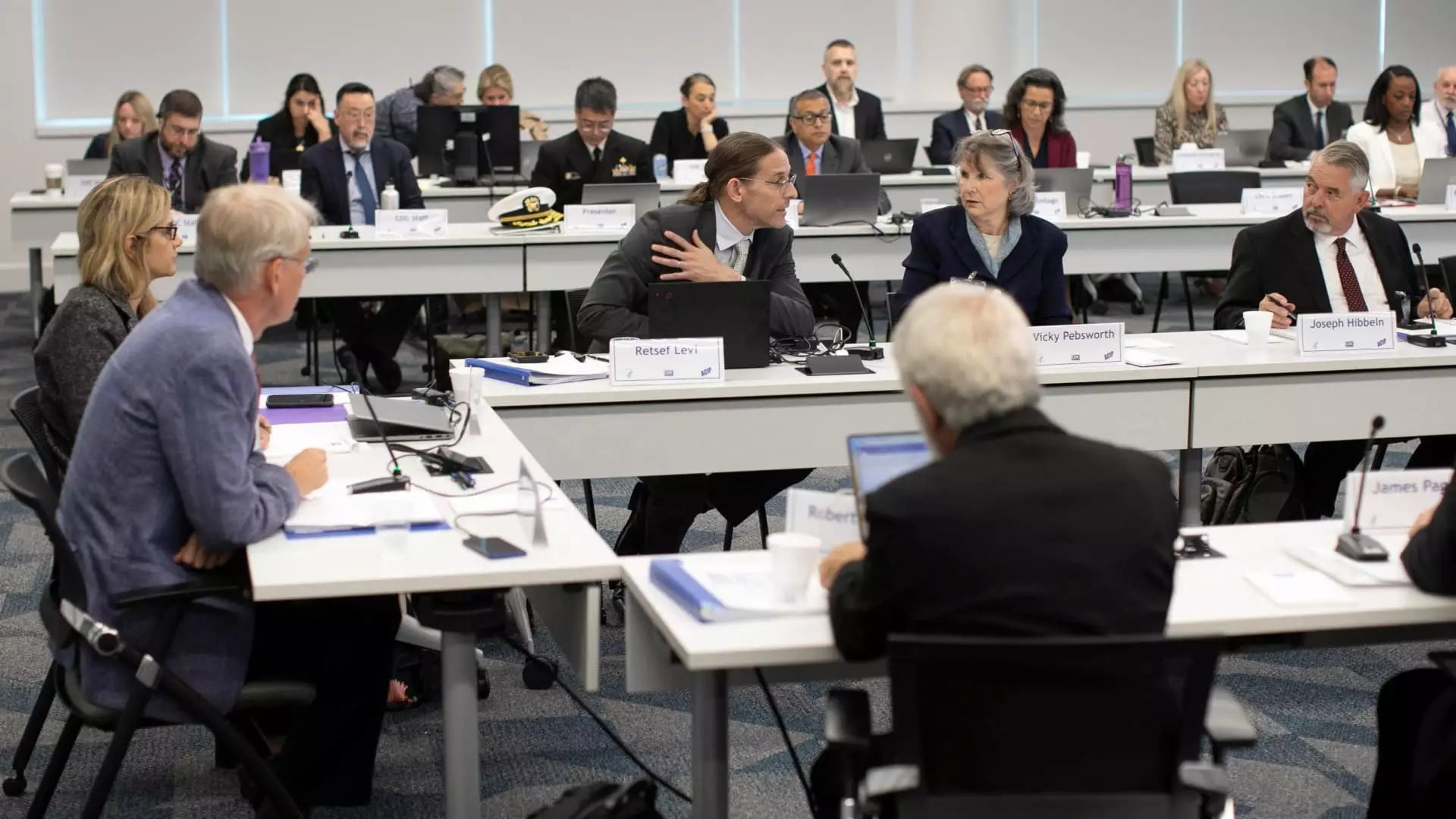In recent weeks, the United States has witnessed a troubling shift in its approach to COVID-19 vaccination policies, a move that threatens to deepen public mistrust and undermine the very principle of informed health choices. Historically, federal health agencies aimed to promote a unified message: COVID-19 vaccines are a critical tool in protecting public health. Now, however, a marked departure from this consensus is emerging, fueled by political interference, ideological divides, and questionable scientific judgments. The advisory panel, once a bastion of expert consensus, has now adopted recommendations that emphasize personal discretion over collective responsibility—a development that could sow confusion and weaken vaccine uptake among populations that need it most.
This new recommendation, advocating “shared clinical decision-making,” marks a significant departure from previous years when universal vaccination was promoted without qualifiers. The implications are profound: where once there was a clear call for vaccination for all eligible age groups, now Americans are encouraged to consult with healthcare providers about whether they should receive the shot. While tailored medical advice has its place, turning a proven public health strategy into an individualized choice erodes one of the most important tools for controlling infectious diseases: widespread immunization. Such vagueness risks creating a dangerous environment where misinformation can flourish, and vaccine complacency can set in, especially among hesitant or skeptical populations.
More troubling is the fact that these recommendations are still evolving under the influence of political appointees with vested interests. The appointment of Robert F. Kennedy Jr., known for his critical stance on mRNA technology, signals a disturbing shift toward politicization of health policy. When expert panels are shaped by figures opposed to scientific consensus, the credibility of vaccination programs diminishes. It also risks setting a precedent where health decisions are influenced more by political ideology than by rigorous scientific analysis, undermining the integrity of public health institutions.
The Risk of Selective Messaging and Public Misinformation
One cannot ignore the potential fallout from confusing guidance on COVID-19 vaccines. If Americans are told that vaccines are optional rather than essential, the natural consequence could be a decline in vaccination rates, especially among vulnerable groups. The CDC’s recommendation for high-risk cases and the wavering stance for healthy children and pregnant women create a patchwork narrative that is hard for the average citizen to interpret. Compounding this confusion is the disparity in state-level policies, with some jurisdictions altering or ignoring federal guidance altogether. The result is a fractured national response, with inconsistent messaging weakening the collective shield against the virus.
Furthermore, the undermining of previous vaccine efficacy data—highlighted by some panel members questioning the safety and effectiveness of mRNA vaccines—raises genuine concerns about the foundation of our vaccination strategy. While many studies affirm the safety and life-saving benefits of COVID vaccines, voices like MIT’s Retsef Levi cast doubt on the robustness of the data, fueling skepticism. When authoritative voices challenge the scientific consensus, they contribute to a climate in which vaccine hesitancy becomes normalized and amplified. This is particularly perilous given recent research indicating that a consistent, universal vaccination approach could have saved thousands of lives and prevented countless hospitalizations—yet policy shifts threaten to roll back these gains.
The messaging surrounding vaccines also exposes an alarming inconsistency: private insurers pledge to cover all recommended vaccines, yet policy changes and prescription requirements could place unnecessary access barriers in front of the public. Such contradictions fuel distrust and confusion, making it harder for ordinary Americans to make informed choices. In the era of COVID-19, transparency, consistency, and clear communication are indispensable. Once these pillars are compromised, public confidence deteriorates, and the collective effort to combat the virus is hindered.
A Center-Left Perspective on Public Health Autonomy
From a centrist liberal standpoint, the core issue extends beyond the scientific debates—it’s about safeguarding individual autonomy within a framework of collective responsibility. Democratic societies thrive on informed choice and transparency; public health initiatives should empower rather than coerce. Yet, the current trajectory risks veering into paternalism, where policy decisions are dictated more by political strategizing than by evidence-based medicine.
Supporting vaccine flexibility is not synonymous with abandoning public health; instead, it emphasizes the importance of empowering individuals with accurate information and personalized medical advice. However, this must be balanced with proactive efforts to counter misinformation, reinforce scientific consensus, and maintain the integrity of health institutions. My concern is that the current approach, driven by political appointments and questionable scientific skepticism, jeopardizes this balance. It opens the door to deepening divides between different communities, fostering vaccine skepticism, and ultimately risking a resurgence of COVID-19 that could have been mitigated by more steadfast, transparent public health policies.
While respect for personal choice is essential, it should not come at the expense of communal safety—especially when evidence shows that high vaccination rates are instrumental in preventing severe illness and death. The challenge for liberal-minded health advocates is to promote policies rooted in trust, transparency, and scientific integrity, rather than succumbing to populist narratives that threaten to destabilize our collective health security.
In essence, the drift toward more fragmented and politicized vaccination guidance is a misguided gamble—one that risks exacerbating health disparities and prolonging the pandemic’s aftermath. As stewards of public health, we must advocate for policies that prioritize science, safeguard individual autonomy, and foster unified, transparent communication that can withstand political upheavals. Only in this way can we ensure that the lessons of COVID are not lost, and that our health system remains resilient in the face of future crises.

